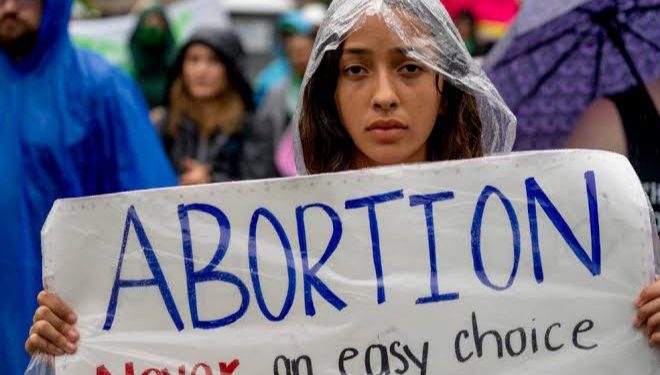By Enyichukwu Enemanna
Women seeking to terminate pregnancy in Hungary must listen to a “foetal heartbeat” before they can undergo the procedure as the country moves to tighten abortion laws.
The decree provides that healthcare workers must provide pregnant women with “a clearly identifiable indication of foetal vital signs” before proceeding with an abortion.
In a statement, Hungary’s Interior Ministry said “nearly two-thirds of Hungarians associate the beginning of a child’s life with the first heartbeat”.
It said modern equipment can detect heartbeats early in pregnancy to provide “more comprehensive information for pregnant women”.
Amnesty International has however kicked against the new law, saying it violates women’s right to abortion.
Aron Demeter, from Amnesty International Hungary, said the decree was a “very alarming step back” which “basically puts women already in a difficult position into a more difficult position”.
He said, “The only ‘achievement’ of this amendment will be that people trying to access abortion will be more traumatised and more stressed.”
Mr Demeter said the organisation was calling for the repeal of the amendment, adding: “It is not about giving information to women to make informed decisions, but rather to put pressure on them not to access abortion, which is definitely a violation of their human rights.”
Dora Duro, a politician with the radical right-wing Our Homeland party, took credit for the new hurdle, which comes into effect on Thursday.
She said the government had adopted her party’s proposal.
“This is the first pro-life move since the regulation of abortion in 1956, breaking a decades-old taboo,” she wrote on Facebook.
Hungary has relatively liberal abortion laws despite its nationalist government, which portrays itself as a champion of traditional family values.
They have remained largely unchanged since the procedure was legalised during the country’s socialist period in 1953.
The government, led by Prime Minister Viktor Orban, has offered significant tax breaks and subsidies for families that have multiple children in an attempt to boost the country’s declining fertility rate.
It has also enshrined that “the life of a foetus will be protected from conception” in its 2011 constitution – though it has not yet taken steps to significantly tighten the country’s abortion laws.


































